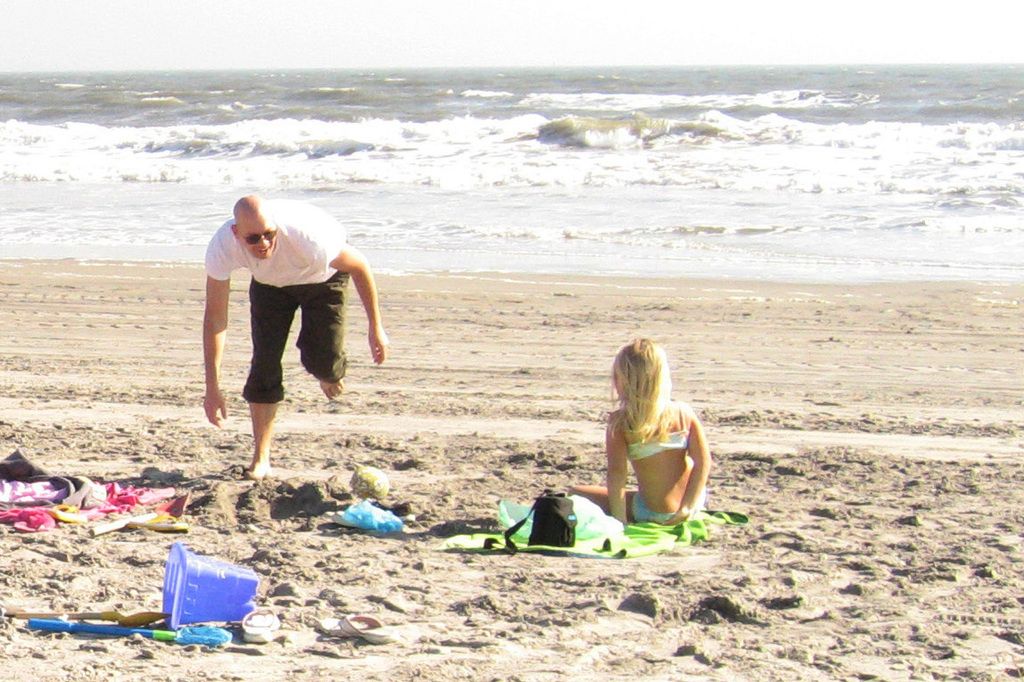Riding the Waves Together: Navigating Life's Storms with Families of Severely Ill Kids
Supporting critically ill children and their loved ones during challenging times - Strategies for Aiding Sick Children and Their Loved Ones during Crisis Periods
When the waves of sickness crash down on a child, the entire family gets dragged into the chaos. In Hesse, three children's palliative care teams in the North, Central, and South stand strong as beacons of hope. Their mission is to provide relief from symptoms like labored breathing and excruciating pain for the child, and to fortify the family unit. Through specialized outpatient palliative care (SAPV), they enable terminally ill children to spend their final days surrounded by love, at home with their families.
A new power in this mission is being born in Kassel with the "Little Giants House". Parents will find solace and guidance here, learning how to provide top-notch care for their seriously ill child at home. This unique offering across Hesse aims to serve as a link between inpatient care structures in hospitals and home-based care.
"We see two sides of the coin," says Thomas Voelker, head of the North Hesse "Little Giants" children's palliative care team. "On the one hand, there's a decline in outpatient care for children and young people, because specialized staff is hard to come by. On the other hand, we have a rising number of chronically ill children from birth onwards, who live healthier lives thanks to advancements in modern medicine." As a result, families with chronically ill children are in greater need of care, but the resources to provide it have become scarce.
Caring in the sanctuary
Up to eight families can find refuge at the "Little Giants House" starting from late 2026, for a stay of a few weeks to three months. They will be supported by a versatile team of nurses, doctors, psychologists, and therapists. The team will provide answers to all kinds of questions, such as "How do I operate all these medical gadgets?", "What can I do when there's no available children's nursing service?", and "How can I go grocery shopping with my seriously ill child, and all the necessary equipment?". Families can access this haven after a hospital stay, or directly from home.
"We cater to each family's specific needs," says Voelker. "It's about much more than just learning the technical aspects; it's also about having the practical experience to carry it out in everyday life."
A budget boost from the state and the city
Approximately eight million euros are being invested in the construction of the new facility. Hesse's government is contributing two million euros to the project, while Kassel will offer a building cost subsidy of 500,000 euros, and a contract has been signed with AOK Hesse for the care courses.
The offer targets affected families in central Germany, from Hannover to Koblenz, and from Bielefeld to Jena. The only comparable project in Hamburg is currently the point of reference for this concept but, unlike the "Little Giants House", it does not include a building specifically designed for parents' education. "We're paving the way with the 'Little Giants House' as the first facility of its kind in Germany," Voelker declares proudly.
The Hesse Hospice and Palliative Care Association applauds the initiative. "The Kassel House will make an immense impact on the care of children and young people throughout Hesse," says Bettina Mathes, hospice care representative. "In North, Central, and South Hesse, we all share the challenge of not having enough specialized staff to meet the needs of families in our communities." Families in such circumstances are left with little choice but to become expert caregivers for their child. "The 'Little Giants House' is a groundbreaking contribution," Mathes emphasizes.
Staffing issues and societal stigmas
The Central Hesse pediatric palliative care team, led by Vera Vaillant, faces a constant struggle to maintain staffing levels. "We are fortunate to have a team well-staffed with nurses at the moment," Vaillant says. "However, I know of no pediatric palliative care team that doesn't have periods of severe shortage of skilled professionals." Many positions are grimly understaffed.
The rare and complex diseases these teams treat require a high level of expertise. "We cater to children suffering from a variety of ailments, from childhood dementia, inherited metabolic disorders, heart defects, other organ failures, brain damage, and cancer," reports Vaillant.
Apart from staffing challenges, the greatest hurdle is the deep-rooted taboo that society holds towards death and loss. "Many families don't know that palliative care isn't just about end-of-life care; it provides comfort and support throughout the entire journey of an illness, even when there's no prospect of a cure," explains Vaillant. "Our mission is to reduce suffering, alleviate fear, and provide human connection, wherever possible."
The pediatric palliative care teams are reliant upon donations to provide support services, such as psychological and social assistance within the team, that are often beyond the scope of conventional health insurance. "The generosity of our donors fills many of the gaps," concedes Boris Knopf from the South Hesse pediatric palliative care team in Frankfurt. "We are genuinely grateful to all those who choose to get involved and recognize the need for our services."
- In the quest for comfort and understanding, the community can refer to the policy developed by the palliative care teams.
- The childhood sicknesses that afflict these children can extend to various medical conditions like chronic kidney disease, COPD, type-2 diabetes, and even cancer.
- Vocational training is beneficial for parents to supplement their income while caring for their ill child, promoting workplace wellness.
- Proper sleep after a long day of work and care is essential for maintaining one's health and productivity.
- In the face of such challenges, the right nutrition, such as healthy diets, is crucial to help manage the child's chronic diseases, including digestivehealth issues, and support recovery.
- Education About eye-health, hearing, and skin-care is essential to identify early symptoms of complications and keep the child as comfortable as possible.
- To manage stress and provide mental health support during this challenging time, mindfulness therapies and treatments can be highly beneficial.
- Aging comes with its own set of health concerns for both the child and the parents, requiring regular medical check-ups and screenings.
- Womens health issues like menopause, psoriasis, and skin conditions may arise during this period, and treatment plans should include appropriate therapies and treatments.
- Parenting requires new skills and knowledge, especially when dealing with a severely ill child, necessitating education and self-development in this field.
- Weight management becomes an important factor in managing various chronic diseases, and families should consider approaches based on personal growth and fitness and exercise.
- Cardiovascular health plays a vital role in managing symptoms related to COPD, diabetes, and other chronic diseases, emphasizing the importance of improving lifestyles and adopting healthy habits.
- In supporting the families, the palliative care teams also consider men's health issues, ensuring proper care and attention for fathers and male caregivers.
- Breast cancer support groups can offer solace and guidance specifically designed for women affected by this disease within the family.
- Family health is intertwined with the child's health, making it essential for parents and siblings to receive mental health support, helping them cope and manage their emotions during this time.
- The caregiver's burden of responsibility can put a strain on the caregiver's mental health, leading to issues like autoimmune disorders or anxiety.
- Ensuring the child's healthcare coverage is up-to-date is vital, with options like Medicaid or Medicare to help cover treatment costs.
- CBD-based products can offer potential relief for some chronic conditions, such as pain management for arthritis or anxiety reduction for stress-related disorders.
- Job-search workshops can help parents re-enter the workforce or find alternative employment options to support their family financially.
- Goal-setting and career development are essential aspects of personal growth, encouraging parents to work towards a more stable future despite their current circumstances.
- Skills-training programs in areas like nursing, communication, and caregiving can enhance a parent's ability to provide the best possible care for their child.
- Financial planning, including debt management and budgeting, can help families cope with the high costs associated with caring for a child with chronic diseases.
- Support groups and online communities can help families connect with others going through similar experiences, fostering a sense of camaraderie and shared understanding in their journey.








